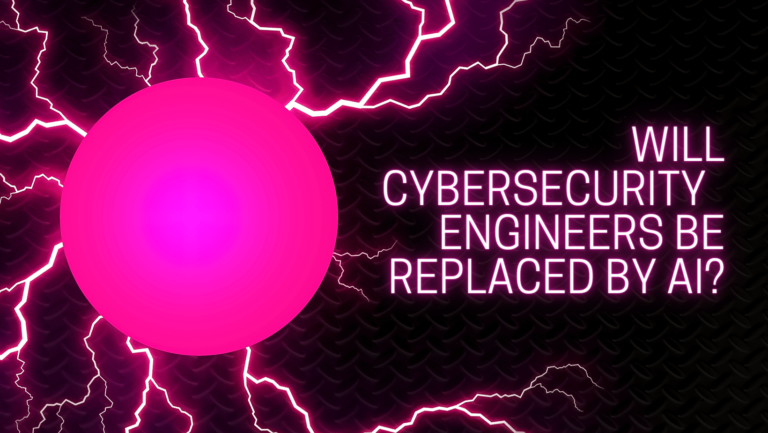Will cybersecurity engineers be replaced by AI?
Here’s a point-by-point breakdown of why cybersecurity engineers are unlikely to be replaced by AI:
1.Complexity of Cyber Threats:
- Cyber threats are always changing and getting better.
- Engineers in cybersecurity know how to think critically, solve problems, and comprehend the intricate nature of these threats.
- While AI can aid in the detection and mitigation of some types of attacks, human intervention is frequently necessary for the analysis and response to emerging threats.
2.Contextual Understanding:
- Engineers in cybersecurity know a lot about the systems, networks, and infrastructure they are responsible for protecting.
- They are familiar with the context in which these systems operate, which includes specific risk factors, regulations, and organizational objectives.
- They are able to tailor security measures based on this contextual understanding, something that AI may struggle to do without human guidance.
3.Adaptability and Creativity:
- Network safety engineers should be versatile and think inventively to expect new assault vectors and foster imaginative safeguards.
- Although AI algorithms are able to learn from past data and patterns, they may struggle with novel attack strategies or situations that call for creative thinking.
- Human cybersecurity professionals are able to effectively respond to evolving threats because they bring a unique perspective, intuition, and creativity to the table.
4.Human Judgment and Ethics:
- Making crucial decisions that have ramifications for society, ethics, and the law is often part of cybersecurity.
- Network protection engineers have the capacity to practice judgment, think about moral factors, and grasp the expected effect of their activities
- Simulated intelligence needs human qualities and may not necessarily in all cases settle on choices that line up with more extensive cultural interests or authoritative objectives.
5. AI as an Enabler:
- Cybersecurity efforts are enhanced by AI technologies like behavioral analytics and machine learning.
- They can dissect information, distinguish designs, and recognize oddities that might demonstrate potential security breaks or assaults.
- Simulated intelligence can computerize routine errands, permitting network safety experts to zero in on additional complicated parts of their work.
Table of Contents
6. Continuous Evolution of Threats:
- Cybersecurity engineers are required to remain up to date on the most recent threats and vulnerabilities due to the frequent emergence of new attack methods.
- Their skill empowers them to comprehend advancing assault techniques, foster proactive protection systems, and carry out fitting countermeasures.
- Without human intervention, AI algorithms may struggle to keep up with the rapid pace at which threats change.
7. Adversarial AI and Attack Surface Expansion:
- When attackers take advantage of flaws in AI systems to get around security measures, adversarial AI raises concerns.
- The identification and mitigation of such risks, the creation of robust defenses, and the continuous monitoring of security measures all depend on cybersecurity engineers.
- Their knowledge aids in addressing the new attack surfaces and difficulties brought about by the application of AI in cybersecurity.
In conclusion, although AI technologies are useful for enhancing cybersecurity efforts, it is unlikely that cybersecurity engineers will be replaced entirely by AI because of the complexity of threats, the necessity of contextual understanding, the need for creative problem-solving, and the significance of human judgment and ethics. In dealing with the ever-changing landscape of cyber threats, a collaborative strategy in which AI assists and enhances human cybersecurity professionals is more realistic and efficient. Will cybersecurity engineers be replaced by AI? now its no longer a doubt.
We can learn one point that in this AI time Cyber Security Career is irreversible and sustainable that why we need to learn it. Here you can learn
We can also learn cyber security from here..
FAQs:
Will cybersecurity engineers be replaced by AI?
There are numerous concerns as AI continues to gain momentum in cybersecurity, such as; whether cyber security will be taken over by AI and whether or not jobs will be automated; which profession is better, simulated intelligence or network safety? While AI has a number of advantages when it comes to cybersecurity, it also has some limitations.
Advantages of AI in Cybersecurity:
AI has a number of advantages in cybersecurity, including its capacity to quickly and accurately analyze a large amount of data, recognize and respond to threats immediately, and automate numerous cybersecurity tasks. Additionally, AI can utilize lessons learned from previous security incidents to enhance threat detection and response in the future.
Limitations of AI in Cybersecurity:
Despite its benefits, AI has a number of cybersecurity limitations. It’s possible that AI algorithms won’t be able to spot emerging threats that haven’t been seen before. Additionally, AI may not be able to comprehend the context of certain circumstances, resulting in false positives or negatives.
